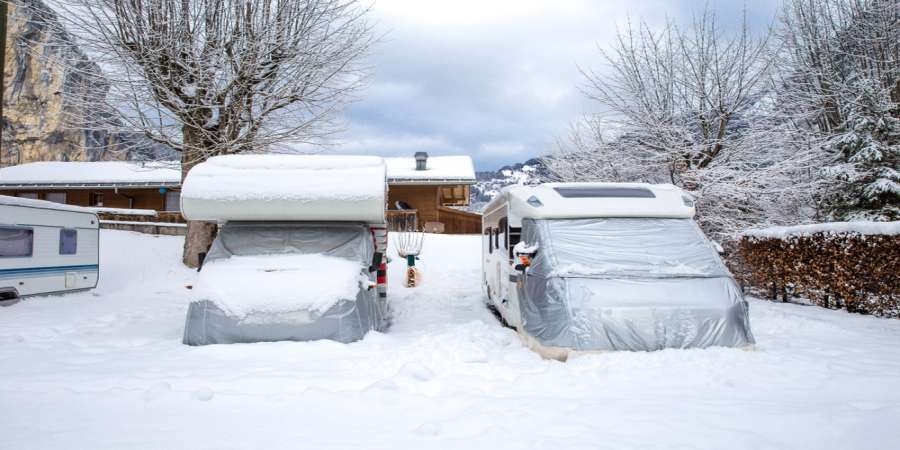How to Keep Your RV Holding Tanks From Freezing
With the Winter Storm incoming from Siberia this December in 2022, RV owners in Texas are looking to protect their recreational vehicle's from the extreme cold that will arrive in just a few days. Some parts of the RV are especially susceptible to cold temperatures and you should take care to protect them prior to the freeze. Today, we're going to take a look at how to keep your RV holding tanks from freezing as well as a quick glance at the other key points to ensure are well protected.
Parts of Your RV Most Likely to Be Damaged from Freezing Weather
The primary areas that are susceptible to freezing temperatures are the tanks, pipes, and hook-up hoses. In other words, anything that comes into contact with water you should ensure are completely cleared out and dry before the freeze. The location of the pipes and tanks can also change the degree of danger that they pose during a winter freeze. Check where yours are located and if they aren't properly insulated from the weather, then you should take proper precautions. If your RV was manufactured this century, you can be sure there are methods of protecting it from the weather and we're here to help you shield any weak spots from the below freezing temperatures coming this week.
Insulate Your RV Holding Tanks
Unless you plan on living in your RV through this weather, those three things are the most important to keep insulated from the weather. Keeping a build-in furnace, electric heater, or portable floor heater to warm the living space inside of the RV will help keep the tanks thawed so long as they are located inside the RV. If your holding tanks are located outside the RV, which is most RV's including Class As, Class Cs, Travel Trailers, and Fifth Wheels, then you need to insulate them. You can install an RV skirt, use an aftermarket heating system or heating blanket, or you can purhcase a pipe heating cable. No time? Don't worry, you can at least keep heavy rugs on the floor to trap heat inside. Worst case scenario, use RV antifreeze to your gray and black tanks.
Insulate Your RV Pipes
Plumbing pipes in your RV run all throughout and some may run through both the interior and exterior. Pipes exposed to the cold air are much more likely to freeze and need thick air-tight insulated padding. Pipes on the interior can be insulated or have an interior heater running to prevent freezing. It's also important to keep those pipes clear of water and keep in mind that heating the interior section of a pipe can transmit that heat slowly to the exterior portions as well.
Insulate Your RV Water Hook-Up Hose
Don't leave your RV water hook-up hose connected during freezing temperatures. Water can collect into the low points of the discharge pipe and freeze, causing expensive damages and dumping problems later on. It may be best to close the gray water valve, rinse out the discharge pipe, and then shake it out until you need to dump it again. You can also fill up your freshwater tank and disconnec the water hook-up hose if you know the temperatures will be dropping below freezing ahead of time.
Do You Need an RV That Can Handle Cold Winter Temperatures?
If you're looking for a used RV for a great price that can better handle cold temperatures, reach our to our sales team at Your RV Broker in Justin, TX on the outisde of Dallas Fort Worth. We can help you find the perfect RV to handle any weather and save you a lot of money at the same time. Simply give us a call or text us at 817-409-8997.
